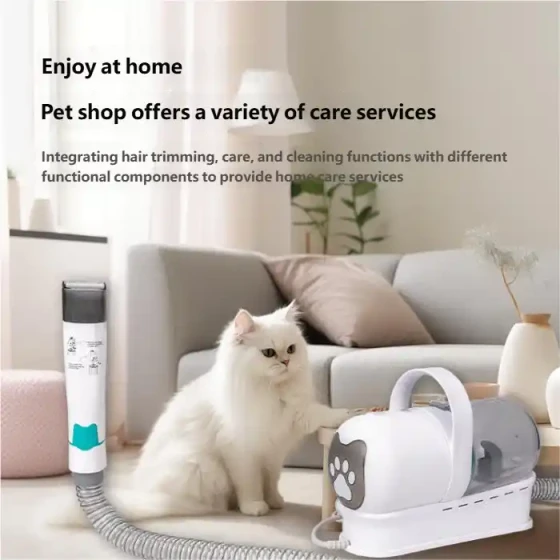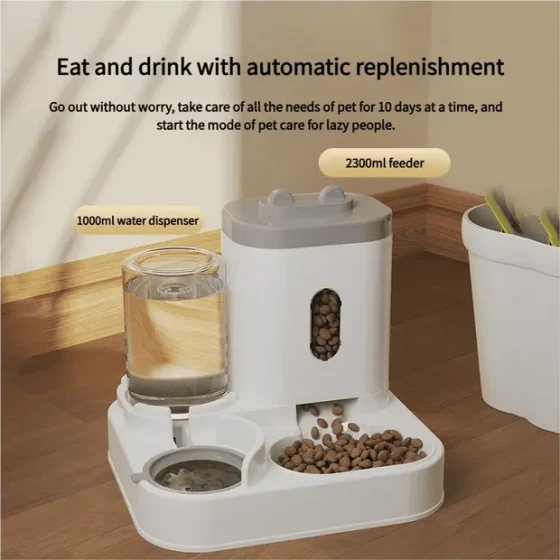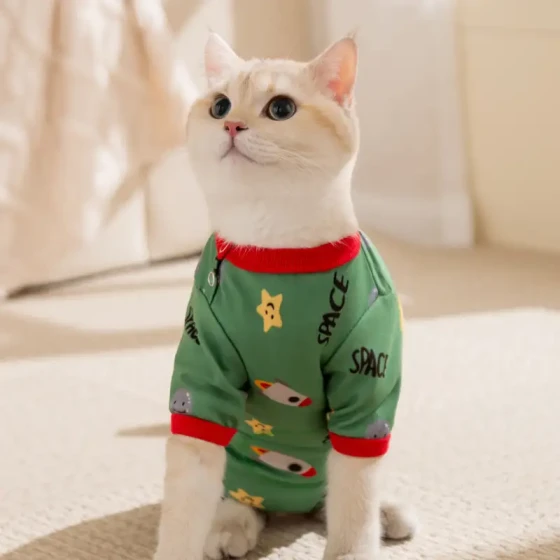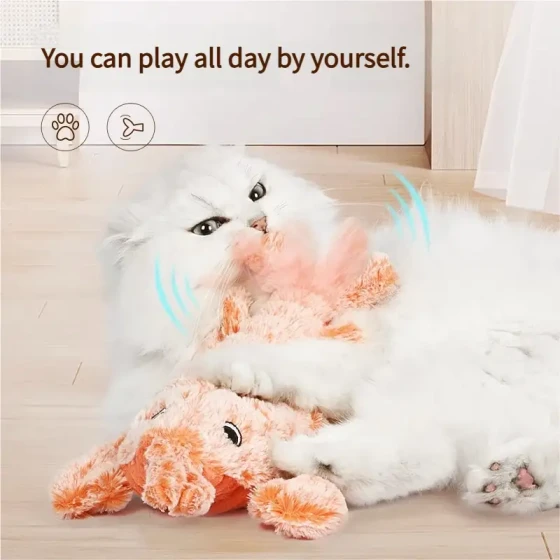Cat Loss of Appetite_Beware of Hidden Diseases
Is your cat not eating? This is not just a simple "little temper"; it might be the body silently sending an alarm. Hidden diseases behind it should not be ignored. Cat owners must stay alert.
Imagine, the little one who usually rushes to the food at the slightest sound and eats with great appetite, suddenly ignoring the delicious food in front of it, even losing interest in its favorite snacks. At this time, many cat owners may subconsciously think: "Is it being picky?" or "Is it tired of eating?" Don't rush to conclusions. Although sometimes it really is these "small issues," the more serious fact is that loss of appetite is often the tip of the iceberg indicating internal problems within the cat's body.
Cats are naturally "pain tolerance masters." Their ancestors learned in the wild to hide weaknesses and discomforts to survive, because showing vulnerability could make them targets for predators. This instinct has passed down to today, causing domestic cats to hide their illness quietly until symptoms become serious, appearing through seemingly "mild" abnormalities; decreased appetite is one of the most common and important warning signs.
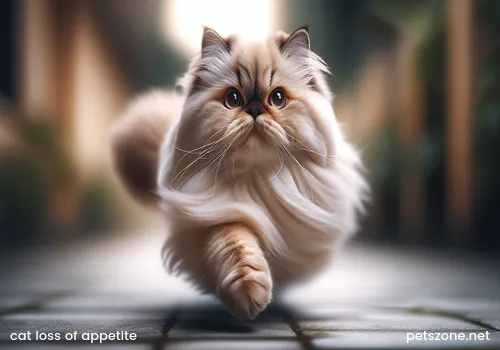
Why is it so dangerous when cats don't eat?
Here we need to specifically mention a disease that sounds scary but is indeed very dangerous — Feline Hepatic Lipidosis (Hepatic Lipidosis), commonly known as "fatty liver syndrome." Unlike human fatty liver mostly caused by overeating, feline hepatic lipidosis is often "caused by starvation." When a cat stops eating for various reasons for a prolonged time (sometimes less than three days, especially in obese cats), the body begins to break down stored fat for energy. However, the cat's unique liver metabolism cannot process these mobilized fatty acids efficiently without adequate nutrition, leading to a massive buildup of fat in liver cells, impairing liver function. The liver is one of the cat’s most important organs; once it fails, consequences can be severe and life-threatening. This is why veterinarians repeatedly stress that if a cat does not eat for over 24 hours (even less time for kittens), medical attention must be sought promptly without delay.
The "real culprits" behind loss of appetite
So, besides relatively "friendly" reasons like picky eating, environmental changes (moving house, new family member, noise or other stressors), or brief discomforts after vaccination or deworming, what less friendly diseases might cause cats to lose their appetite? There is a wide variety, covering nearly all diseases cats may suffer from:
- Oral problems: This is a very common but easily overlooked cause. Imagine how painful it is to eat with toothache or mouth ulcers. Cats are the same. Gingivitis, periodontal disease, stomatitis, loose or broken teeth, mouth ulcers, or even oral tumors can cause severe pain during eating, making them prefer starving over trying. Sometimes they may want to eat but can't, or only want soft food and water, which strongly suggests oral problems.
- Digestive system diseases: Gastrointestinal issues are common causes of decreased appetite in cats. Examples include gastritis (from eating wrong foods, bacterial or viral infections), excessive gastric acid, pancreatitis, digestive tract obstruction (swallowing string, plastic, etc.), severe hairball problems, inflammatory bowel disease (IBD), and so on. These can cause nausea, abdominal pain, vomiting, diarrhea, or constipation, naturally leading to loss of appetite. Sometimes appetite loss is the first symptom.
- Kidney disease: Especially chronic kidney disease, which is very common in middle-aged and older cats. Decreased kidney function leads to toxin buildup causing nausea and discomfort, resulting in appetite reduction. Other symptoms include increased water drinking and urination (sometimes outside the litter box), weight loss, and poor spirit.
- Liver disease: Besides fatty liver (both cause and effect), other liver problems such as hepatitis and cholangitis also affect appetite and overall health, sometimes accompanied by jaundice (yellowing of ears, gums, eyes), lethargy, and other signs.
- Infection and inflammation: Various infections, whether respiratory infections (feline viral rhinotracheitis, colds causing nasal congestion that impairs smell), urinary tract infections, or systemic inflammatory responses, cause discomfort and pain that suppress appetite.
- Other chronic diseases: Diabetes, hyperthyroidism (late stage), heart disease, anemia, autoimmune diseases, etc., can also lead to loss of appetite, usually with other specific symptoms.
- Pain: Although cats have a high tolerance for pain, chronic or persistent pain (arthritis, muscle pain, visceral pain) seriously affects their quality of life, including appetite.
- Tumors (cancer): Various types of tumors, regardless of location, can impact organ function, cause pain, nausea, or release substances affecting appetite, resulting in reduced eating and weight loss.
- Medication side effects: Certain medications, such as antibiotics, painkillers, chemotherapy drugs, may cause nausea or discomfort, leading to appetite decline.
What can cat owners do?
First, staying vigilant and careful observation is key. Record your cat’s daily food intake and note even slight changes. Observe their eating behavior: are they eager or hesitant, do they lick and walk away? Are there other symptoms like vomiting, diarrhea, lethargy, drowsiness, weight loss, abnormal breathing, drooling, or bad breath?
Second, rule out non-disease factors: check if the food bowl is clean, placed in a quiet and comfortable spot, if the food is fresh or flavor has changed, and whether recent home changes caused stress. You can try warming the food (warm food has stronger aroma, attracting cats better) or adding flavorful wet food or a little unsalted chicken broth to stimulate appetite.
Most importantly: if appetite loss lasts more than 24 hours (especially for usually overweight cats, even shorter time), or if accompanied by any other abnormal symptoms, see a vet immediately! Do not self-diagnose or hope the cat will recover on its own. Veterinarians will take a detailed history, perform thorough physical exams, and may do blood tests (including CBC, biochemistry, electrolytes), urine analysis, X-rays or ultrasound to find the underlying cause. Only by diagnosing the root problem can targeted treatment be given.
While waiting for diagnosis or treatment, vets may recommend measures to ensure nutritional intake, such as appetite stimulants or forced feeding via nasal or esophageal feeding tubes to prevent complications like fatty liver.
In summary, loss of appetite in cats is not a trivial matter; it is a window revealing possible internal problems. As responsible owners, our role is not to be "internet vets," but to stay alert, promptly detect abnormalities, and seek professional medical help quickly. This is not only responsible for the cat’s life but also cherishes the special bond. After all, when the kitty is healthy, we can relax and enjoy "cat cuddles," right?
References:
* NetEase News related reports
* Starbahani Pet Nutrition articles
* Boai Animal Hospital popular science articles
* VCA Animal Hospitals articles
* WSAVA (World Small Animal Veterinary Association) conference materials
* Cornell University Veterinary College popular science articles
* QQ News related reports
* NetEase News related reports (Fatty liver)
* Monster Tribe popular science articles
* Bull Pharma popular science articles
* Douban related discussions
* MaoUP popular science articles
* Cat Website articles
* MSD Veterinary Manual
* Cloud Vet articles
* Slowly Understand Cats popular science articles
* Westminster Vets articles
